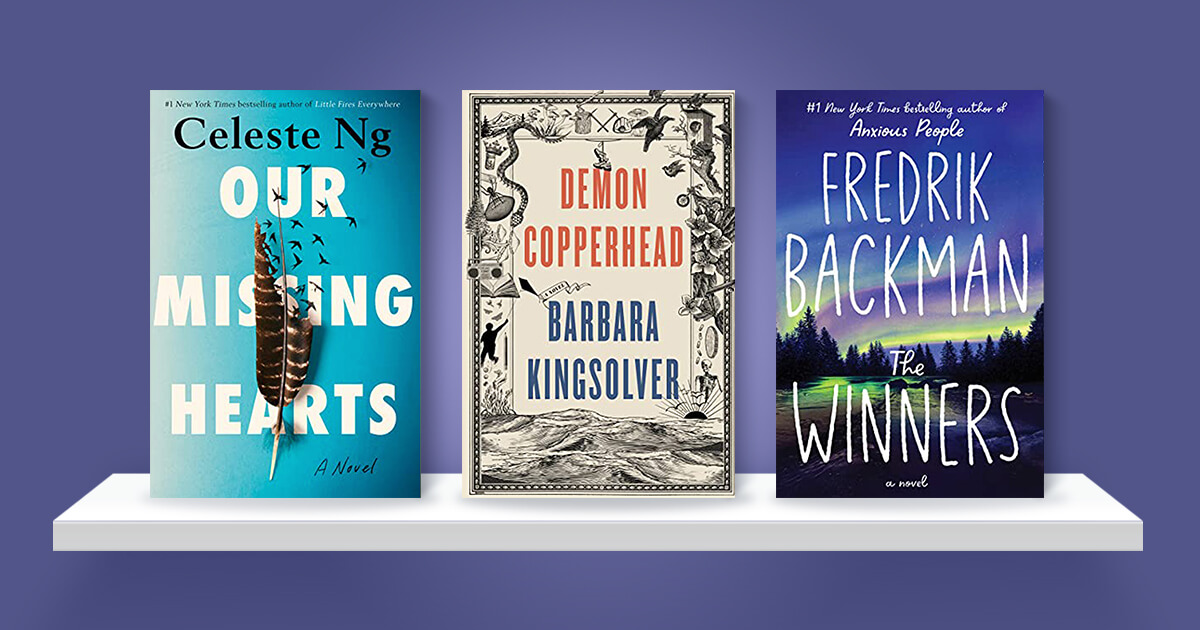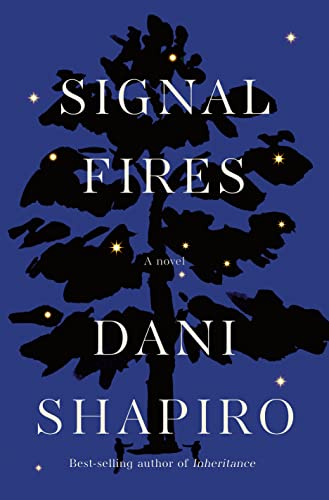Many of October’s new books tell stories about women — sisters, mothers, daughters — displaying grace or grit while facing challenges. Science fiction and short stories will expand horizons, while nonfiction, including a memoir, will inspire. The latest from the best-selling author of Little Fires Everywhere, Barbara Kingsolver returns with a modern-day retelling of a Dickens’ classic, Fredrik Backman’s Beartown trilogy takes a bow, and much more.
Our Missing Hearts by Celeste Ng
I couldn’t wait to get my hands on Our Missing Hearts, Celeste Ng’s latest novel following her megahit Little Fires Everywhere. After devouring Hearts in two days, I can tell you it’s even better than Fires. At the center of the story is a family separated by a nationalistic movement that feels chilling in how it might just happen today. A mom mysteriously disappears—and her young son learns why on a courageous quest to find her, aided by everyday heroes in unexpected places. The prose sings as the pieces click. This thought-provoking story serves as a warning, a dystopian fairy tale, and a suspenseful thriller with moments of hope that buoyed me as I read. It’s fiction as revolution. You’ll question everything after you finish the last page—and for days after. This isn’t just one of my favorite books of October, it’s one of my favorite books of the year.
While scrolling through her feed, Anita clicks on an ad for the Goddess Effect, a Los Angeles exercise studio and aspirational lifestyle company founded by a guru named Venus. After throwing herself into the program, it dawns on Anita that things may not be what they seemed at first. Mocking the wellness industry can seem like picking off low-hanging fruit, but Marikar elevates her story with wry humor and compassion.
Olivia doesn’t know whom to believe — her 18-year-old son, Asher, who claims he remembers nothing after finding his girlfriend, Lily, bleeding and motionless at the foot of her staircase, or the police, who have enough evidence to charge him with murder. The tragic events propel a story that is alternatingly heart-pounding and heartbreaking. This collaboration between two best-selling authors seamlessly weaves together Olivia and Lily’s journeys, creating a provocative exploration of the strength that love and acceptance require.

An irresistible story of family and the lengths people go—and don’t go—for the ones they love. Dani Shapiro (Inheritance, Devotion, Hourglass) is a master at mining the small—and big—moments that make up a life. In Signal Fires, three teenagers get into a car accident, and only two survive, which forever changes their lives and those of their family. Moving backward and forward in time, Shapiro peels back the decades offering the secrets, memories, fissures, joys of connection, and need for independence that shape siblings, parents, and neighbors. There is something deeply familiar about these characters who wrestle with both the mundane pains of life and the extraordinary.
The Mountain in the Sea by Ray Nayler
Nayler’s debut novel, a cerebral, speculative eco-thriller, considers the capabilities of nonhuman minds. In a near-future world where oceans have been ravaged by pollution, a potentially menacing species of octopus has developed its own language and culture, and a fortune awaits the first to unravel its mysteries. A transnational tech corporation brings marine biologist Ha Nguyen to a research team led by a sentient android whose existence is outlawed in most of the world. As Ha gets closer to discovering the cephalopods’ true potential, hope for coexistence collides with the human tendency toward domination.
Nathaniel Hawthorne’s “The Scarlet Letter” inspires this thoughtfully researched tale about a young woman with an out-of-wedlock daughter. Like her fictional counterpart, Hester Prynne, Isobel Gamble’s husband is presumed to be lost at sea when she begins an affair with the scion of a notorious Puritan family, a young Nathaniel Hathorne (who later added the “w” to his surname). Isobel’s needlework skills, an extraordinary talent she inherited from her Scottish ancestors, bring her modest income and acclaim, but the stigma from her unplanned pregnancy shines a light on the barriers faced by 19th-century women who did not conform.
History is often presented as a series of iconic moments. We know Rosa Parks refused to move from her seat in 1955; the March on Washington took place in 1963; Bloody Sunday took place on Selma’s Edmund Pettus Bridge in 1965. These are essential events in our history, but just as important—and more difficult to convey—are the seemingly limitless ways that the Jim Crow legal system allowed everyday white people to intimidate and literally murder everyday Black people as a way to maintain the status quo. These methods were more common and effective than the more publicized events recorded by history. They cast racism and racial violence as casual and routine—and they were seldom noticed for very long, if at all. Margaret A. Burnham shines a light on that forgotten history with case after case, telling the stories of everyday people and building an argument for reparations.
Sonya’s family benefited from the Delegation, an oppressive regime that used a medically implanted device to reward or punish its citizens’ behavior. Ten years after a violent revolution and now living as a political prisoner, she is offered parole on the condition that she locate a girl the Delegation “reassigned” to another family. Finding the lost child involves unearthing secrets and acknowledging a past she’d rather forget. “Divergent” author Roth smartly envisions the repercussions of a government gone too far and the potential abuse of technology in the wrong hands.
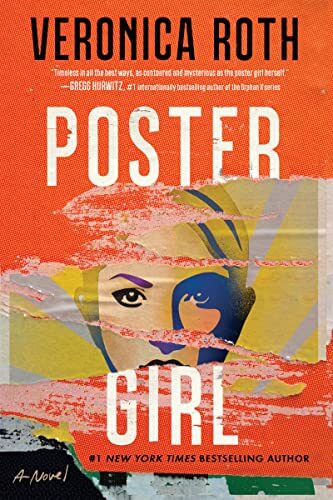
Kingsolver takes a literary classic and makes it her own, peering into the dark corners not of Dickensian England, but of present day in the neglected hollers of Virginia’s Appalachian Mountains. Damon Fields, nicknamed Demon Copperhead, came into the world already behind the eight ball of life, and before long he’s in foster care placements that resemble work camps more than loving homes. Throughout this coming-of-age novel, the rug is constantly pulled out from under him but Demon has reserves of Olympian endurance that somehow, like the man in the arena, enables him to get back up again and again. His knees get dusty—he faces hunger, cruelty, loss, and is swept up in the tidal wave of OxyContin that overtakes his tiny county—but he never loses his love for the place that claims him as its own.
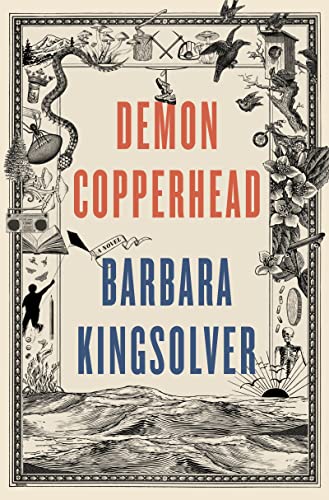
In Gerrardsville, Colorado, a woman dies under the wheels of a moving bus. The death is ruled a suicide. But Jack Reacher saw what really happened: A man in a gray hoodie and jeans, moving stealthily, pushed the victim to her demise—before swiftly grabbing the dead woman’s purse and strolling away. When another homicide is ruled an accident, Reacher knows this is no coincidence. With a killer on the loose, Reacher has no time to waste to track down those responsible.
But Reacher is unaware that these crimes are part of something much larger and more far-reaching: an arsonist out for revenge, a foster kid on the run, a cabal of powerful people involved in a secret conspiracy with many moving parts. There is no room for error, but they make a grave one. They don’t consider Reacher a threat. “There’s too much at stake to start running from shadows.” But Reacher isn’t a shadow. He is flesh and blood. And relentless when it comes to making things right.
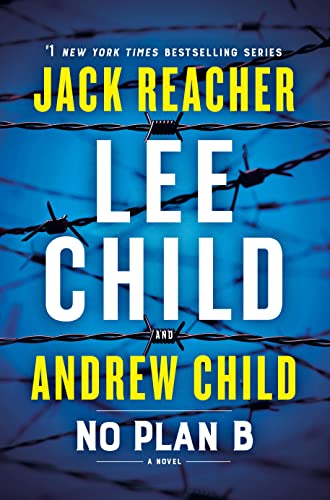
The Escape Artist opens with one of the most riveting chapters you will read any time soon. Two young men are attempting to escape from Auschwitz as Nazi soldiers search for them, and come narrowly close to finding them. Rudolph Vrba was a brilliant young man who became one of only four people to escape Auschwitz. But that is just the beginning of the story. He set back for his native Slovakia; then he set out to warn the world of the atrocities he had witnessed. The author Jonathan Freedland deserves mention here, because he takes a fascinating story about an important if forgotten man in history—and he keeps the story from becoming one dimensional. Vrba was indeed a hero, but much of his effort to warn the world fell on deaf ears. And Vrba was himself a man of contradictions.
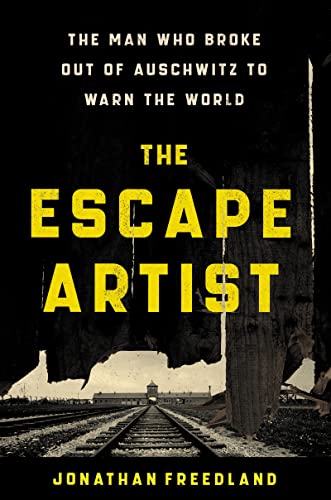
When a whale washes up on an English beach in 1928, twelve-year-old orphan Cristabel Seagrave and her household build a theater from the whale’s ribcage. In the Whalebone theatre, Cristabel is able to escape the stress of her stepparents and their expectations. Using their acting schools, Cristabel and her brother become British secret agents during WWII, a task that threatens to tear their family apart.
Adam Silvera returns with the prequel to his TikTok sensational book, They Both Die at the End. Death-Cast, a new app, promises that it can predict the date of your death. Diagnosed with a heart condition, Orion immediately signs up. On the other hand, Valentino only registers after his sister’s near-death experience. When Orion and Valentine meet in Times Square, their lives are changed forever when one of them receives a call from Death-Cast and the other doesn’t.
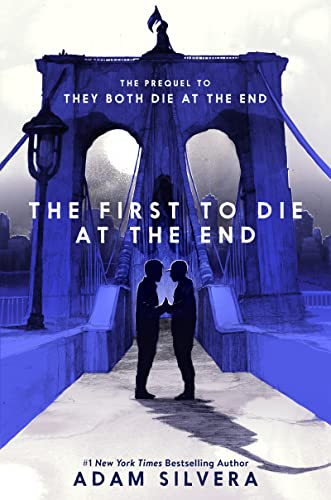
In his first book since winning the Pulitzer Prizer for The Road sixteen years ago, Cormac McCarthy returns with the first book in a two-part series. In Mississippi in 1980, Bobby Western dives into the ocean to investigate a crashed ocean liner. As he explores the crash site, he is haunted by officials, the ghost of his father, and by his sister who is the love and ruin of him.
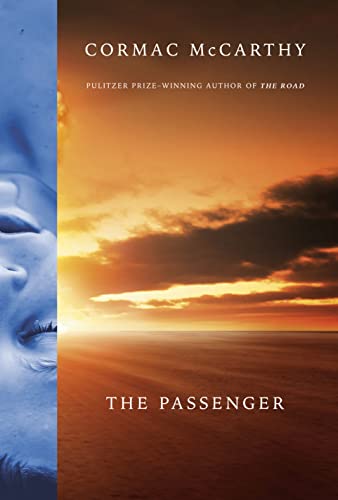
Michael Kozlowski is the editor-in-chief at Good e-Reader and has written about audiobooks and e-readers for the past fifteen years. Newspapers and websites such as the CBC, CNET, Engadget, Huffington Post and the New York Times have picked up his articles. He Lives in Vancouver, British Columbia, Canada.

